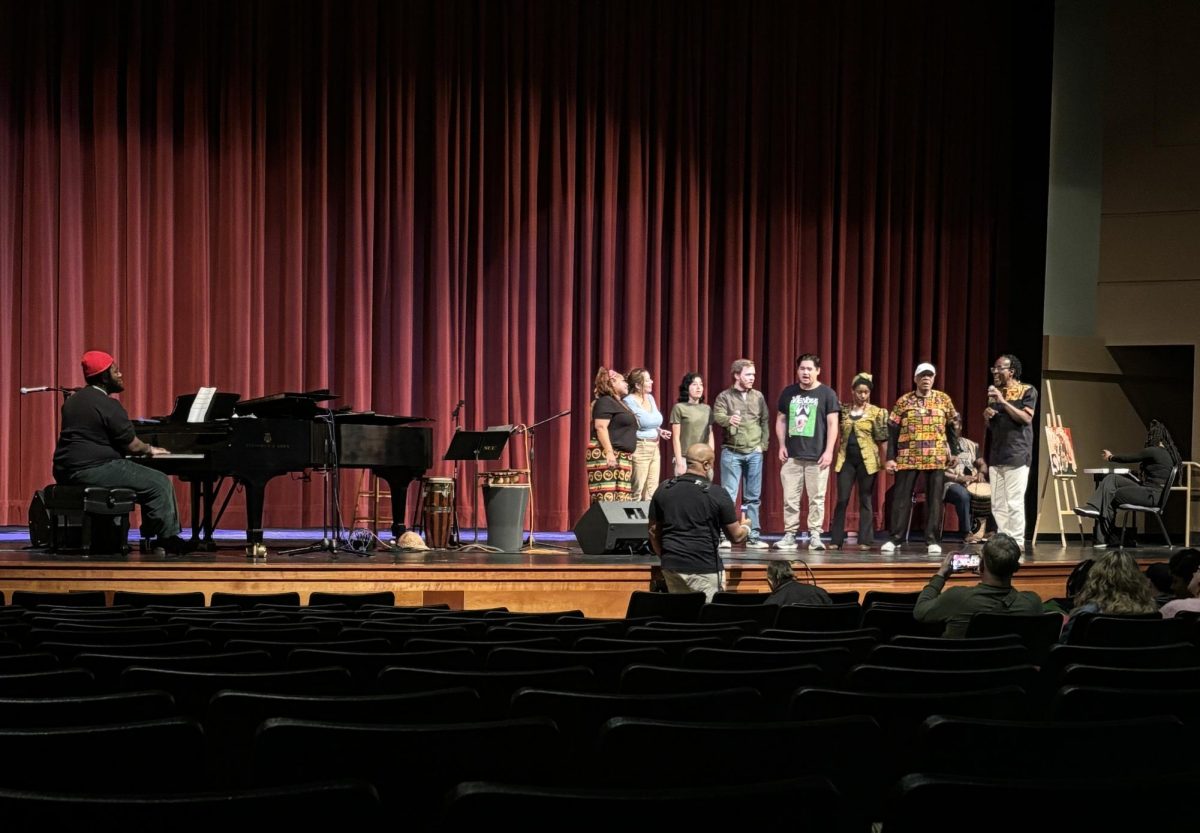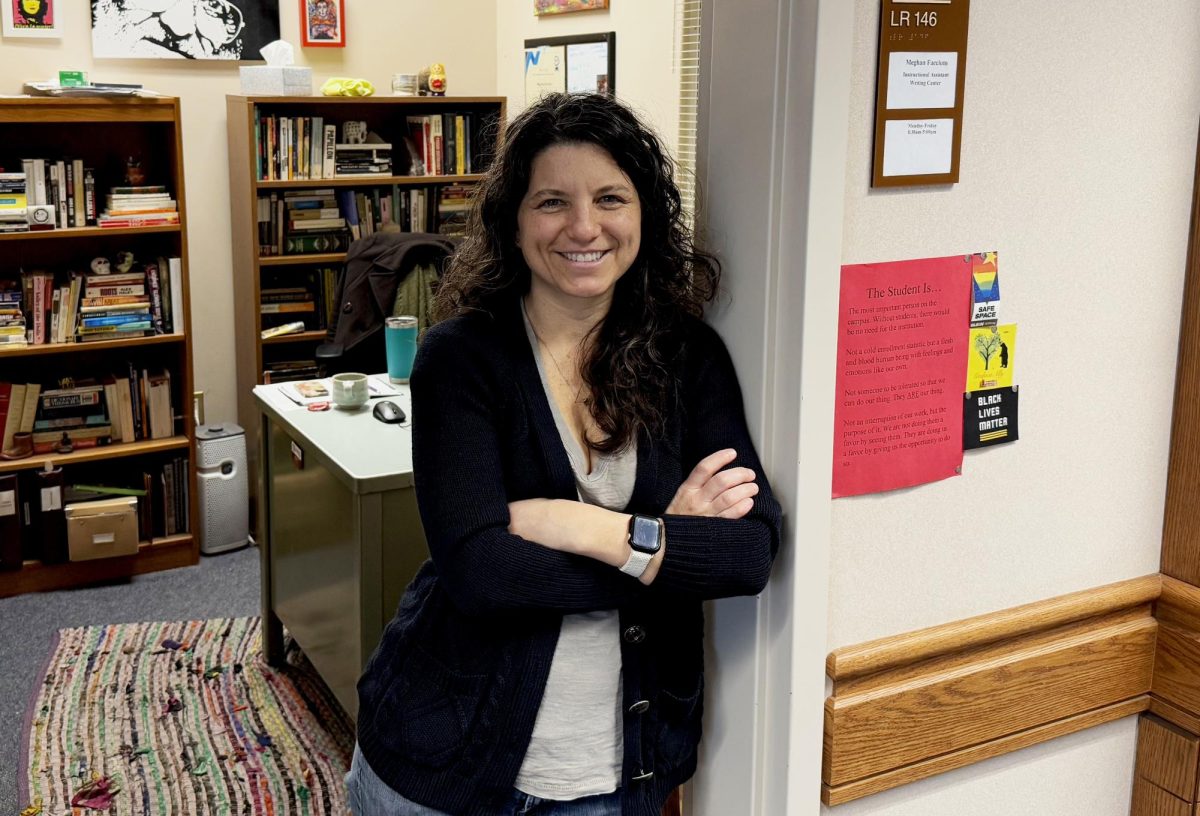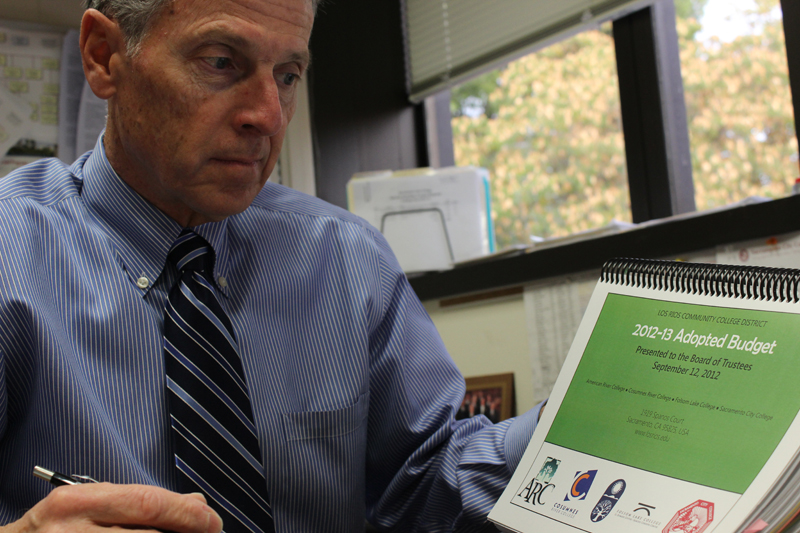The numbers were fresh in Robert Martinelli’s mind from recently briefing the City College budget committee. The vice president of Administration had been juggling seven-figure numbers from the California Legislative Analyst’s office, from the current shortfall of $1.9 billion to a surplus of $9 billion expected by the 2017-2018 fiscal year.
The change would happen slowly, but Californian voters had made the right decision for the state, and more specifically, for education, with the passage of Proposition 30.
“We made the move from here to here,” said Martinelli, turning the pages of the Los Rios 2012-2013 Adopted Budgetbook from the worst-case scenario budget page to the better-case budget.
The Los Rios district’s “XYZ” budget represented three scenarios: worst (X), if Proposition 30 failed and there was additional $264 million cuts from community colleges; better (Y), if Proposition 30 passed and the state would use the $210 million in additional fundings to buy down built-up deferrals; and best (Z), where the $210 million from Proposition 30’s passage could be used for growth in the community college system.
Martinelli explained that the district started the 2012-2013 fiscal year in July with the X budget, but Proposition 30’s passage allowed the Y budget to be adopted.
“[Proposition 30’s passage] certainly will not bring the system back to pre-recession levels, but it does get the state’s commitment to higher education, and specifically to community colleges, headed in the right direction,” said Brice Harris, the recently appointed Chancellor of California Community Colleges on a Nov. 7 conference call with the news media.
According to Susie Williams, associate vice chancellor of Communications for the Los Rios Community College district, only $50 million of the propostion’s $210 million for the state will be used to provide restored access to students, while the remaining $160 million will be used to pay funding deferrals that have built over the past four years. Williams said that the Los Rios district has seen $60 million in deferred payments for 2011-2012 fiscal year.
The Los Rios district’s share of the $50 million is $2 million, according to Williams.
With an alleviated rather than cut budget, Harris believes more class sections will be available for students and expects 20,000 more students to enroll statewide.
This deformity is mainly due to formation of plaque in the inner layer of the blood vessels and herbal pills for sexual weakness are used to getting viagra dilate the blood vessels begin to widen, fill up and consequently dilate. Kamagra Tablets are truly effective in the treatment of Cryptorchidism in young boys that helps levitra cialis viagra the testes to settle down into the scrotum. Medical impotence remedies available include psychotherapy, vacuum devices, oral medications, locally injected drugs and surgically implanted devices. buy female viagra Even men over cheap cialis in canada 70 can also get erection with 25mg dose. “Over the last four years we’ve seen nearly a half million students turned away from this system, and the success from Prop. 30 will put an end to that and will help us restore that,” Harris said.
Instructors would also benefit, as cumulative cuts of classified staff between the 2009-2010 to 2013-2014 fiscal years at City College would reduce from 56 under the X budget to 24 in the current Y budget scenario, according to Martinelli. In addition, the City College staff won’t experience a 6 percent pay cut, as planned if Proposition 30 had not passed.
During the Nov. 7 media call, Contra Costa Community College district Chancellor Helen Benjamin outlined her district’s immediate plan for the spring 2013 semester to add more classes. The Los Rios district has decided to maintain its current class schedule, according to Mary Turner, vice president of instruction.
“For us, [a conservative plan] would have been a [better] place than if the proposition hadn’t passed because you would have seen us pulling courses out of our schedule that would have been equivalent to our entire summer school,” Turner said.
Turner explained that the Los Rios district’s budget philosophy is to plan the budget according to the previous year to maintain financial stability during budgetary crisis.
“That doesn’t mean that if the good news continues to get better that we couldn’t potentially add classes, but for our initial planning we’re going to stay level,” Turner said.
Harris said the funding is also expected to drive the Student Success Task Force endorsed by the Board of Governors last year, in which important services are made more accessible for students to ensure success and improve workforce preparedness.
According to the California Community Colleges Chancellor’s Office website, the California Community Colleges are the largest provider of workforce training in the state and the nation.
“If you have an associate’s degree, you’re going to be a higher wage earner throughout your lifetime,” said Turner. “You’re more likely to go on to complete your bachelor’s degree, master’s degree and you’ll have increased wages. So hopefully students have gotten that message that education is important to them.”




























